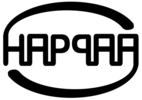Project C6 - Speaker separation for hearing aids with small-footprint deep learning methods
Project C6 - Speaker separation for hearing aids with small-footprint deep learning methods
This project explores deep learning for acoustic separation of speakers' signals captured with hearing aids. The solutions will be compatible with small-footprint hardware and should contribute to improving the communication ability of the respective user.
This is achieved by combining state-of-the-art speaker separation strategies based on recurrent architectures with auditory models of perception for hearing-aid processing in realistic environments. The project advances training algorithms suitable for complex binaural scenes, the preservation of binaural cues in the context of speech separation, as well as quality measures of separated signals.
Publications
2025
- Alcala Padilla D-J, Westhausen NL, Vivekananthan S, Meyer BT (2025) Location-aware target speaker extraction for hearing aids. Proc. Interspeech 2025, 2975-2979. DOI: 10.21437/Interspeech.2025-1787
- Franz S, Grewe T, Meyer BT, Bitzer J (2025) Influence of room acoustics on objective voice assessment methods in the context of speech and language therapy. Proc. Interspeech 2025, Rotterdam, The Netherlands, 17-21.8.2025, p. 5308-53125. DOI: 10.21437/Interspeech.2025-1851
- Hoffner DE, Weihe S, Brand T, Meyer BT (2025) Hearing deficits of transformer-based multilingual ASR for anechoic and spatial signals. Proc. Interspeech 2025, Rotterdam, The Netherlands, 17-21.8.2025, p. 5733-5737. DOI: 10.21437/Interspeech.2025-2741
- Roßbach J, Wagener KC, Meyer BT (2025) Multilingual non-intrusive binaural intelligibility prediction based on phone classification. Computer Speech & Language 89: 101684. DOI: 10.1016/j.csl.2024.101684
- Roßbach J, Westhausen NL, Kayser H, Meyer BT (2025) Non-intrusive binaural speech recognition prediction for hearing aid processing. Speech Communication 170: 103202. DOI:10.1016/j.specom.2025.103202
2024
- Hoffner DE, Roßbach J, Meyer BT (2024) Joint prediction of subjective listening effort and speech intelligibility based on end-to-end learning. Proc. Interspeech 2024, Kos, Greece, 1.-5.09.2024, 4214-4218. DOI: 10.21437/Interspeech.2024-473
- Westhausen NL, Kayser H, Jansen T, Meyer BT (2024) Real-time multichannel deep speech enhancement in hearing aids: Comparing monaural and binaural processing in complex acoustic scenarios. IEEE/ACM Transactions on Audio, Speech, and Language Processing 32, 4596-4606. DOI: 10.1109/TASLP.2024.3473315. Preprint available: 10.48550/arXiv.2405.01967
- Westhausen NL, Meyer BT (2024) Binaural multichannel blind speaker separation with a causal low-latency and low-complexity approach. IEEE Open Journal of Signal Processing 5, 238-247. DOI: 10.1109/OJSP.2023.3343320
2023
- Reuter PM, Rollwage C, Meyer BT (2023) Multilingual query-by-example keyword spotting with metric learning and phoneme-to-embedding mapping. IEEE International Conference on Acoustics, Speech and Signal Processing (ICASSP), Rhodes Island, Greece, 04-10.06.2023, pp. 1-5. DOI: 10.1109/ICASSP49357.2023.10095400
- Westhausen NL, Meyer BT (2023) Low bit rate binaural link for improved ultra low-latency low-complexity multichannel speech enhancement in hearing aids. 2023 IEEE Workshop on Applications of Signal Processing to Audio and Acoustics (WASPAA), New Paltz, NY, USA, 2023, pp. 1-5. DOI: 10.1109/WASPAA58266.2023.10248154
2022
- Kayser H, Hermansky H, Meyer BT (2022) Spatial speech detection for binaural hearing aids using deep phoneme classifiers. Acta Acustica 6:25, 14 pages. DOI: 10.1051/aacus/2022013
- Roßbach J, Huber R, Röttges S, Hauth CF, Biberger T, Brand T, Meyer BT, Rennies J (2022) Speech intelligibility prediction for hearing-impaired listeners with the LEAP model. Proc. Interspeech 2022, (Seoul, South Corea), 3498-3502. DOI: 10.21437/Interspeech.2022-10460
- Westhausen NL, Meyer BT (2022) tPLCnet: Real-time deep packet loss concealment in the time domain using a short temporal context. Interspeech, Incheon, Korea, 18.-22.09.2022, p 2903-2907. 10.21437/Interspeech.2022-10157
Cooperations of PI with SFB prior to funding
- Hülsmeier D, Hauth CF, Röttges S, Kranzusch P, Roßbach J, Schädler MR, Meyer BT, Warzybok A, Brand T (2021) Towards non-intrusive prediction of speech recognition thresholds in binaural conditions. 14th ITG Conference on Speech Communication, Kiel, 29 September-1 October 2021, 199-203.
ieeexplore.ieee.org/abstract/document/9657531 - Roßbach J, Röttges S, Hauth CF, Brand T, Meyer BT (2021) Non-intrusive binaural prediction of speech intelligibility based on phoneme classification. IEEE International Conference on Acoustics, Speech and Signal Processing (ICASSP), pp 396-400.
DOI: 10.1109/ICASSP39728.2021.9413874

